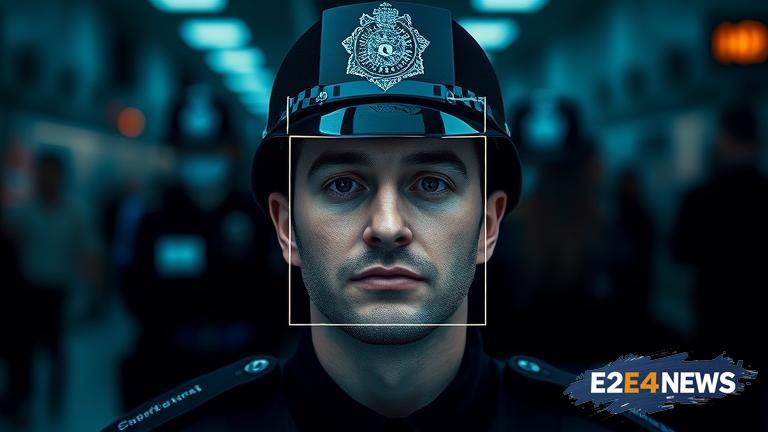The Metropolitan Police Service, the largest police force in the UK, has announced plans to expand its use of live facial recognition technology. This move is expected to double the current usage of the technology, which has been a topic of controversy in recent years. The police force claims that the technology will help to identify and apprehend criminals more efficiently, particularly in crowded areas such as train stations and shopping centers. However, civil liberties groups have expressed concerns over the potential invasion of privacy and the lack of transparency surrounding the use of the technology. The use of live facial recognition technology has been criticized for its potential to disproportionately target certain groups, such as ethnic minorities and protesters. Despite these concerns, the Metropolitan Police Service has stated that the technology will only be used in specific circumstances, such as when a serious crime has been committed or when there is a risk to public safety. The police force has also claimed that the technology is highly accurate, with a success rate of over 90%. However, experts have questioned the accuracy of the technology, citing studies that have shown it to be less effective in certain lighting conditions or when used on people with darker skin tones. The expansion of live facial recognition technology is part of a larger trend towards increased surveillance in the UK, with many cities and towns investing in CCTV cameras and other monitoring systems. While some argue that this increased surveillance is necessary to keep communities safe, others see it as an erosion of civil liberties and a threat to individual freedom. The use of live facial recognition technology has also raised questions about data protection and how the collected data will be stored and used. The Metropolitan Police Service has stated that all data collected will be deleted after 30 days, unless it is needed for a specific investigation. However, this has not alleviated concerns over the potential for data breaches or misuse. The UK’s Information Commissioner’s Office has also expressed concerns over the use of live facial recognition technology, stating that it must be used in a way that is transparent, necessary, and proportionate. The expansion of live facial recognition technology is expected to be rolled out over the next few months, with the police force working to implement the necessary infrastructure and training. As the use of this technology becomes more widespread, it is likely that the debate over its use will continue to grow. Many are calling for greater transparency and oversight of the technology, as well as stricter regulations to ensure that it is used in a way that respects individual rights and freedoms. The use of live facial recognition technology is not unique to the UK, with many countries around the world investing in similar systems. However, the UK’s approach to surveillance and data collection has been criticized for being overly aggressive, with some arguing that it is undermining the country’s reputation as a champion of human rights. As the UK continues to expand its use of live facial recognition technology, it is likely that the international community will be watching closely to see how the technology is used and what impact it has on individual freedoms. The Metropolitan Police Service has stated that it will continue to review and refine its use of the technology, taking into account feedback from the public and concerns raised by civil liberties groups. However, for many, the expansion of live facial recognition technology is a step too far, and a threat to the very fabric of democracy. The use of this technology has also raised questions about the role of police in society, and whether they should be using such invasive technologies to monitor and control the population. As the debate over live facial recognition technology continues to grow, it is likely that we will see increased scrutiny of the police and their use of surveillance technologies. The UK government has also been criticized for its lack of action on the issue, with many calling for clearer regulations and guidelines on the use of live facial recognition technology. The expansion of live facial recognition technology is a complex issue, with many different perspectives and opinions. While some see it as a necessary tool for keeping communities safe, others see it as a threat to individual freedom and a step towards a surveillance state.





